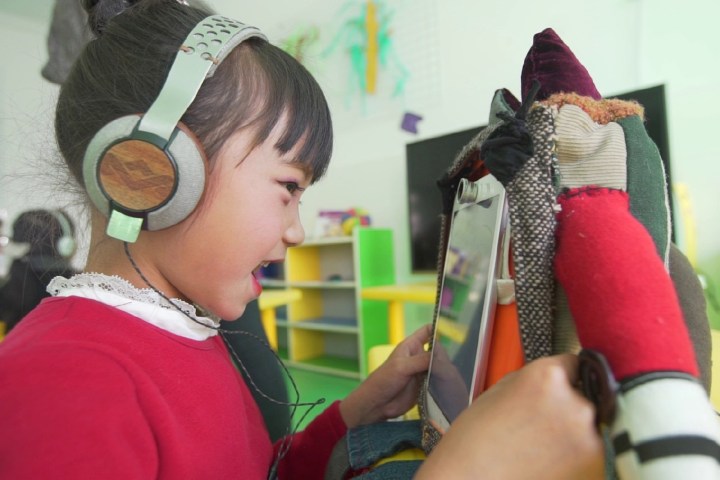
That’s the goal of Little Dragon, a startup which is developing smart educational software designed to sniff out the emotional response of users and reflect it back to them through UI choices.
The company was recently featured as part of TechCrunch Disrupt’s Startup Alley in the U.K., where it was part of the artificial intelligence lineup.
“We’re building feedback between the user and the game that allows us to predict to a certain degree the emotional state of the user or player,” co-founder and CEO Martin Raasch told Digital Trends. “In the future, we want this to be part of educational software that can take that information into account when a user is learning. If the system predicts the user is bored, new content can be added in. If they’re distracted or frustrated, we can learn that information, too. The idea is to keep learners engaged.”
Little Dragon’s technology is based on the facial recognition tools developed by the company Affectiva, one of the leading players in emotion-sensing technology. On top of this, however, they have developed their own reinforcement learning system: a type of AI which autonomously hones strategies — in this case trying to keep the learner as engaged as possible.
“Not all learners learn in the same way,” Raasch continued. “We’re embracing the individuality of every single person who uses our software to maximize their own learning experience — based on who they are and not a standardized learning model.”
At present, the company is finalizing development on its first-ever learning app, aimed at young learners. This app features an on-screen avatar (the “little dragon” character after which the company is named) who guides children through educational games. The title is scheduled for release on mobile platforms this Christmas. It is designed to support English reading skills such as letter and phoneme recognition.
That’s not where Little Dragon’s ambitions end, however. “Right now, we’re focusing on preschool and early childhood education,” Raasch said. “The little green avatar is a useful tool for interaction and making younger users feel comfortable. As we move up through the age groups, we don’t know if we’ll need the avatar on screen all the time. Our aspiration is that as our users grow, our software will also grow in sophistication. In the long run, we want this to be accessible to all age groups.”
We’ll have to wait until launch to find out whether this app truly lives up to its potential, but it’s certainly an interesting idea — and the idea of customized learning is one of the things made possible by the digital revolution.
“I’m absolutely sure that emotion sensing is going to trigger a big change in how we interact with machines,” Raasch concluded. “There’s not enough focus on emotions right now when you interact with your computer. Things should happen far more intuitively than they do — and that means knowing how to be aware of the emotional state of the user. We want to help with that.”


